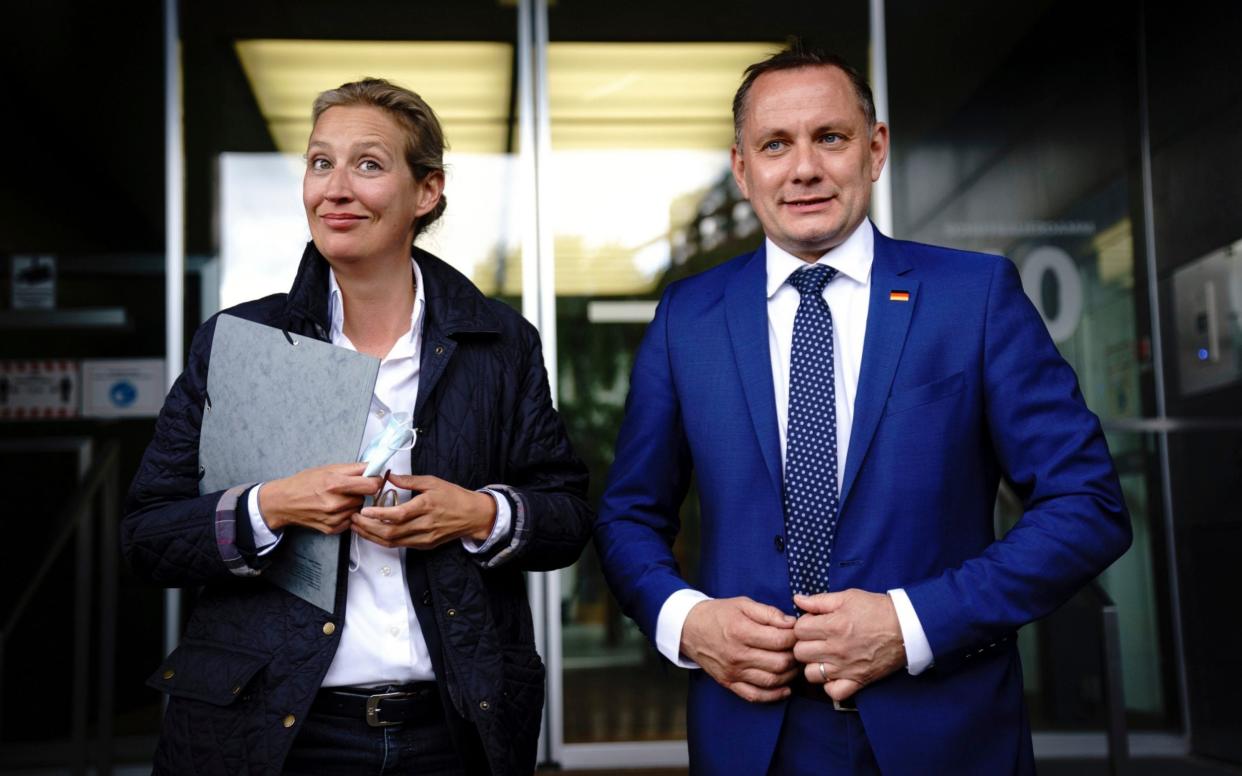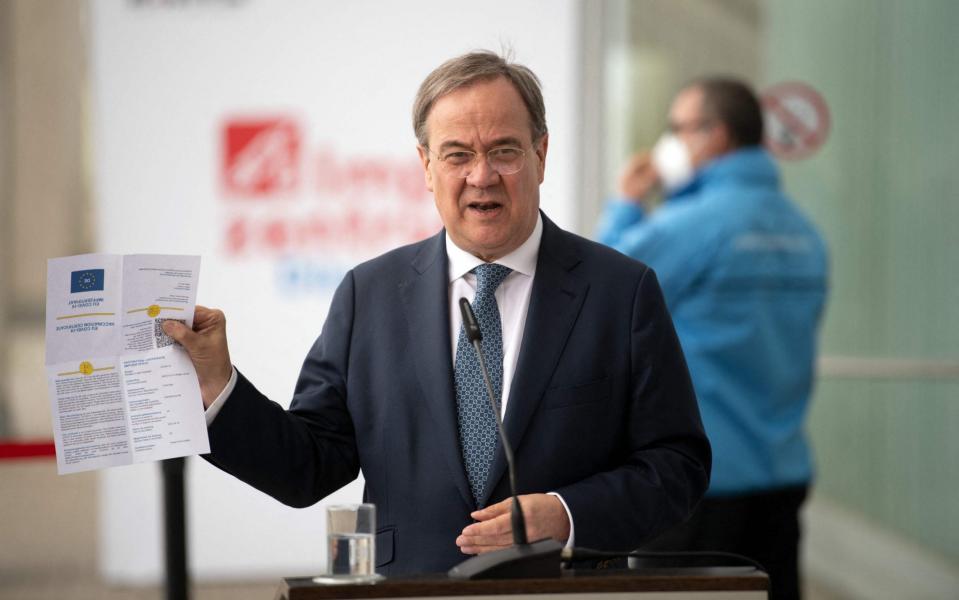Shock poll puts far-Right AfD ahead in German regional elections

- Oops!Something went wrong.Please try again later.
A shock poll has put the far-Right Alternative for Germany party (AfD) in first place ahead of regional elections in eastern Germany next week.
An AfD victory in the state of Saxony-Anhalt would be a major upset and the worst possible start to Angela Merkel’s Christian Democrats' (CDU) campaign ahead of September’s general elections.
A survey by the respected pollster Insa gave the AfD a slim lead, on 26 per cent, just ahead of the CDU on 25 per cent, ahead of the June 3 regional vote.
The findings are unlikely to signal a national resurgence for the AfD — Saxony-Anhalt, in the former communist east, is something of an outlier and the party is polling badly at a national level.
But an AfD victory in the final regional elections before September’s national vote would be a bitter blow for rival parties — and particularly for the CDU, which has won the state in every election since 2002.
It could further shake confidence in Armin Laschet, the party’s candidate to succeed Mrs Merkel, who is stepping down following September's elections after 15 years in power.

Mr Laschet, already struggling with low approval ratings, was not the grassroots choice to lead the CDU into September’s election, and he can little afford a loss now.
Even if the AfD wins in Saxony-Anhalt, it is unlikely to be able to form a regional government. The poll has it well short of a majority, and all the other parties have ruled out going into coalition with it.
Instead a rival coalition is likely form around the CDU in order to keep the far-Right party out of power.
Reiner Haseloff, the regional CDU leader, has made it clear any form of cooperation with the AfD is a “red line” the party will not cross.
“The AfD has no coalition partners, and cannot govern without them and against the CDU,” Hermann Binkert, the head of Insa, said.
There was good news for the Green Party, which is set to more than double its vote from 2016 in Saxony-Anhalt, according to the Insa poll, which had it in fourth place on 11 per cent.
The party has traditionally struggled in the former communist east, and a good result would be seen as evidence it can now compete in every region of Germany.
The Greens briefly led the national polls this month, but they have slipped back to second, on 22 per cent behind the CDU on 26 percent.
The AfD is currently in fifth place nationally on 11 per cent, short of the 12.5 per cent the party won in 2017’s general election.

